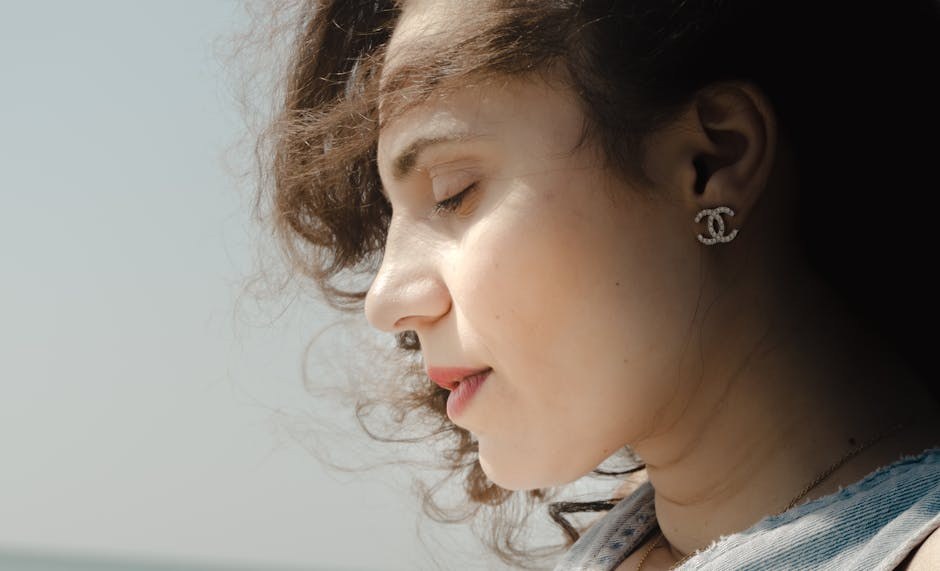Crushing on someone who already knows your quirks, your laugh, and your coffee order can feel both thrilling and terrifying. You want to ask a friend out without jolting the connection you already treasure – you want curiosity without pressure, romance without fallout. This guide reframes that delicate moment as a slow, respectful shift rather than a single dramatic leap, helping you make space for possibility while protecting the friendship you value.
When feelings escalate beyond the usual banter, clarity is kindness. The aim isn’t to stage a rom-com confession in a crowded bar; it’s to move with intention, to read the room, and to build a shared sense of “maybe” over time. You can ask a friend out while signaling care for their comfort – and yours – by pacing the process, tailoring your approach, and giving both of you an easy path back if the spark isn’t mutual.
Should you date a friend at all?
Let’s start with the question that often gets buried under butterflies – is it wise to ask a friend out? There’s no universal verdict here, but there are honest trade-offs to weigh. The upside is real: many steady partnerships begin with friendship, where trust and understanding are already baked in. The downside is real, too: if the answer isn’t what you hoped, you’ll need time, tact, and boundaries to re-stabilize the bond. Neither outcome is wrong; both require maturity.

Imagine two timelines. On the first, you share your interest and it’s reciprocated – the friendship becomes a foundation, not a casualty. On the second, you share and it isn’t reciprocated – the friendship feels wobbly for a while, then finds a new, clearer balance. Either way, being deliberate about how you ask a friend out reduces turbulence and increases the chance that you both feel respected.
Before you make a move: prep that protects the bond
Good preparation isn’t game-playing – it’s consideration. If you intend to ask a friend out, slow down long enough to confirm what you feel, anticipate outcomes, and choose language that aligns with your values.
-
Check in with yourself
Attraction can flare during a lonely weekend or a flattering conversation. Give your interest a little time to breathe. Is this a steady feeling or a passing spark? If it’s steady, your impulse to ask a friend out remains – and that’s data you can trust. If it fades, that’s data too. You don’t have to act on every flicker.

-
Be honest about risk
When you try to ask a friend out, you open a door that can’t be fully closed – even if you both decide to remain just friends. Ask yourself whether you can handle a polite no, and whether you’re willing to give the friendship breathing room if needed. Knowing your boundaries in advance helps you respond gracefully in the moment.
-
Sketch a simple plan
Planning isn’t scripting every syllable; it’s choosing a setting and tone that reflect your respect. Decide where you’ll talk – somewhere low-key and private enough for honesty, but not so intense that it feels like a confrontation. Decide how you’ll phrase the ask. When you ask a friend out, brevity beats bravado: share what you enjoy about your connection, name your curiosity, and invite their perspective.
-
Imagine the worst, then soften it
This isn’t negativity – it’s resilience training. If they don’t share your feelings, what will you say to keep the moment kind? What boundary will you offer so neither of you feels trapped? Preparing a gentle response lets you ask a friend out without panicking if you hear “I don’t feel that way.” You can thank them for their honesty, affirm that you value the friendship, and propose a little space to recalibrate.

Signals, timing, and small shifts that invite possibility
The path to romance with a friend isn’t a neon-lit highway – it’s a series of subtle detours. You’re not trying to manipulate; you’re inviting the other person to notice you in a slightly new light. If you plan to ask a friend out, these shifts help you evaluate compatibility while keeping the atmosphere relaxed.
-
Confirm their relationship status
Before you ask a friend out, make sure they’re available. If they’re partnered and content, respect that situation. Desire isn’t a referendum on your worth – it’s a snapshot in time. Avoid entanglements that would put anyone in an unfair position.
-
Step out of the “only-buddy” frame
People often maintain the categories they’re given. If your dynamic is strictly platonic banter, nudge it toward warmth. Share a personal enthusiasm, dress a touch sharper for hangouts, or compliment their style. Without a word about dating, you subtly preview what it might feel like if you did ask a friend out and they said yes.
-
Avoid the drunken confession
Alcohol lowers inhibitions – and often raises regret. A slurred debate about feelings can come off as pressure. If you want to ask a friend out, do it when you’re clear-headed. That clarity reads as respect and makes it far easier for them to respond authentically.
-
Start subtle, then build
Light flirting is less about clever lines and more about presence. Offer small, sincere compliments, maintain warm eye contact, and let your smiles linger a beat. If the energy is returned, keep going slowly. This is how you explore whether you should eventually ask a friend out – you’re testing for resonance rather than demanding a verdict.
-
Lead with your joy
Be the most you – not the most available. Share activities you truly enjoy and bring your curiosity into conversations. When you do, spending time together feels buoyant, not performative. That ease sets the stage if you decide to ask a friend out; the invitation will reflect a vibe they already associate with you: light, engaging, and low-pressure.
-
Offer attentive focus
Attention is a powerful signal. Put your phone away. Ask follow-up questions. Remember specifics. Offering focused presence says, “you matter here.” Consistent presence – not smothering intensity – is a strong prelude if you later ask a friend out, because it shows you are already building a caring space.
-
Use eye contact thoughtfully
Eye contact communicates more than most compliments. Keep it open and warm – not fixed or intense. A soft gaze paired with a smile can be read as interest without cornering the other person. This kind of resonance can make the moment you ask a friend out feel like a natural next step instead of a jarring pivot.
-
Turn up the flirting gradually
Escalation works best when it’s gentle. Move from “that color looks great on you” to “I like how I feel when we hang out.” Sprinkle in playful teasing, then add a sincere note about what you appreciate. If the vibe is mutual, each step affirms that you could ask a friend out without catching them off guard.
-
Introduce light touch with care
Nonverbal cues matter – and consent matters most. Keep touch brief and context-appropriate: a quick tap on the forearm to emphasize a joke, a friendly half-hug when saying goodbye. Watch their body language. If they lean in, warmth is growing; if they lean away, reset. This sensitivity makes it easier to ask a friend out later because you’ve demonstrated respect for boundaries.
-
Keep awkward moments small
Even with care, you may overshoot a joke or misread a cue. If they seem uncomfortable or comment that your vibe feels different, lighten the moment – smile, change the topic, give space. Let the connection re-center. When you eventually ask a friend out, it will land better if the weeks leading up to it felt comfortable, not tense.
-
Create low-key one-on-one time
Shift some hangouts away from the group. Offer a casual activity you both enjoy – a walk after work, a coffee before class, a quick bite near the office. These moments are where chemistry becomes unmistakable. If they seek out these windows too, your plan to ask a friend out starts to feel less risky and more aligned with reality.
-
Affirm attraction clearly – but lightly
Compliments that focus on specific, physical details can signal interest without vaulting into grand declarations. “You look great today” or “that laugh gets me every time” lands as admiration rather than pressure. When delivered with a smile and space, it paves the way to ask a friend out while keeping the dynamic playful.
-
Choose the moment and ask
After building a gentle runway, it’s time. Keep the language simple and kind. You might say you’ve loved your time together, that you’ve been curious about seeing one another in a dating context, and you’d like to take them out – but there’s zero pressure. When you ask a friend out, clarity plus permission is everything: “I care about our friendship, so please be honest either way.”
How to phrase it with care
Words can either inflate the moment or soften it. To ask a friend out graciously, aim for statements that own your feelings without assigning responsibility to them. Speak in “I” language: “I’ve really enjoyed our time lately, and I’ve been wondering how it would feel to go on an actual date with you.” Avoid ultimatums or phrases that imply the friendship has been a consolation prize. Your goal is an invitation – not a courtroom declaration.
Be specific about the activity – coffee, a gallery visit, a favorite taco spot – so the ask feels practical rather than abstract. Specificity reduces pressure.
Keep the stakes low. A short coffee date can lead to a longer evening if you both feel it. Starting small makes it easier to say yes – or to say no without guilt.
Offer an easy exit. “If not, no worries – I like what we have and I’ll follow your lead on space.” This sentence demonstrates that you can ask a friend out while still prioritizing their comfort.
If the answer is no
Disappointment stings – and you can still choose dignity. Thank them for being straightforward. Reaffirm that you value the connection. Suggest a short reset if emotions feel charged. When you ask a friend out and it isn’t mutual, the goal is to minimize ambiguity so the friendship can land on its feet. A brief pause – a week or two – helps feelings settle. After that, re-engage gently with group settings or texts about neutral topics, and let the rhythm rebuild naturally.
Resist the urge to negotiate their “no” into a “maybe.” Acceptance is an act of care. Protect your self-respect by expanding your social world – new hobbies, new people, new places – while staying friendly. You’re not erasing the friendship; you’re letting it regain its natural shape.
If the answer is yes
Wonderful – now you get to explore, not accelerate. The first date is a chance to confirm the ease you already share in a slightly new frame. Keep it simple and short, and leave room to want more. Because you chose to ask a friend out with care, you can continue with the same tone: clear communication, mutual check-ins, and a pace that respects both of you.
Expect a learning curve. Familiarity can make the early romantic steps feel oddly formal – or especially sweet. Either way, narrate the process lightly: “This feels a little new for me; I’m glad it’s with you.” That transparency keeps the connection grounded as you adapt from friends to partners.
Boundaries that keep everything healthy
Whether they accept or decline, boundaries are the guardrails that protect everyone. If you ask a friend out and start dating, honor prior commitments and friendships so your world doesn’t shrink overnight. If they decline, avoid turning them into your counselor about the rejection – that’s heavy lifting they didn’t sign up for. Share your feelings with other trusted friends or a journal, and let the dynamic with this person stay light and respectful.
Time: Agree on how much one-on-one time feels good in the early stage – especially if you share a workplace, class, or friend group.
Publicness: Decide how and when to loop in mutual friends if you are exploring romance. Labels can wait; clarity can’t.
Communication: Keep messages clear and context-aware. If one of you needs space, say so directly rather than ghosting. The way you ask a friend out – direct, kind, pressure-free – can set a lasting tone for how you both communicate.
Reading the room: signs to slow down
Not every warm moment is a green light. If responses become brief, if plans repeatedly fall through, or if joking suddenly turns stiff, treat those changes as cues to ease off. When you want to ask a friend out, restraint is as important as courage. Ask yourself: do I feel invited here? If the answer is no, take a step back. People show interest through consistency – availability, engagement, initiative. If those fade, let your efforts fade too.
Making peace with uncertainty
There’s no foolproof method – that’s what makes this both scary and meaningful. When you choose to ask a friend out, you are choosing vulnerability with someone you already admire. That risk is part of what gives the moment its electricity. You can minimize harm through patience, empathy, and honest language, but you can’t control the outcome. What you can control is how kindly you show up, how gracefully you listen, and how gently you land if the path isn’t mutual.
Sample language you can adapt
These aren’t scripts to read verbatim – they’re scaffolding to help you speak like yourself. Modify the tone, swap in your shared references, and keep it short.
“I’ve really enjoyed the time we’ve been spending together. I’m curious how it would feel to try an actual date – would you be open to that?”
“No pressure at all, but I’d love to take you for coffee this week and call it a date. If that’s not your vibe, I’m still happy we’re friends.”
“Lately I’ve been seeing you a little differently, in a good way. If it’s mutual, I’d like to take you out – and if not, thank you for being honest with me.”
Each option centers clarity and consent, which is exactly how you want to ask a friend out. You’re extending an invitation, not assigning an obligation. You’re giving them choices, not painting them into a corner.
Why pacing matters
Romance added to an existing friendship is like introducing a new instrument to a familiar song – the melody is there, but the harmony needs tuning. Going slowly lets you both listen. When you ask a friend out after weeks of thoughtful warmth rather than minutes of impulsive confession, your invitation lands as a natural development, not a curveball. Patience communicates confidence: you trust that the connection will either deepen or clarify without force.
Aftercare for any outcome
What you do in the days after you ask a friend out matters as much as the question itself. If the answer is no, honor the space you offered. If the answer is yes, follow through smoothly – confirm the time, pick a low-pressure activity, and keep the first date contained enough that ending on a high note is easy. In both scenarios, check in with yourself: are you proud of how you handled it? Pride built on integrity is a reliable compass for whatever comes next.
Most importantly, remember that friendship and romance are not opposing teams – they’re forms of care that sometimes overlap. Whether or not you ask a friend out today, you can still cultivate curiosity, warmth, and respect in all your connections. Those habits make every relationship – platonic or romantic – sturdier and more joyful.